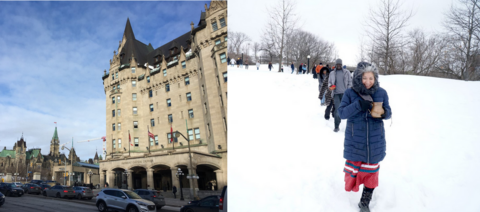
MCC and the Centre for Peace Advancement – Engaging students in advocacy
by Selah Woelk
Conrad Grebel University College and the Kindred Credit Union Centre for Peace Advancement help connect students with exciting opportunities assisting Mennonite Central Committee (MCC) in providing “relief, development, and peace in the name of Christ.”
The Peace and Conflict Studies program often points students towards MCC’s service and learning opportunities such as SALT. SALT is an 11-month program which allows young people to volunteer in countries across the world, supported by and supporting MCC partners in that region. 4th year PACS student Katie is currently in Rwanda volunteering with an MCC partner organization that runs peace libraries for children in Kigali. Learn more about her experience.
There is also an MCC student representative in the Conrad Grebel residence community who promotes MCC opportunities within the student community and sits on MCC Ontario’s board to ensure youth voices are heard.
Students from Conrad Grebel attended both the MCC UN Student Seminar in New York in fall of 2022 and the Peace and Justice Student Seminar in Ottawa this month.The Centre’s current Program Assistant, and 3rd year PACS student Selah Woelk participated in the Peace and Justice seminar and shares her reflections on the experience below:
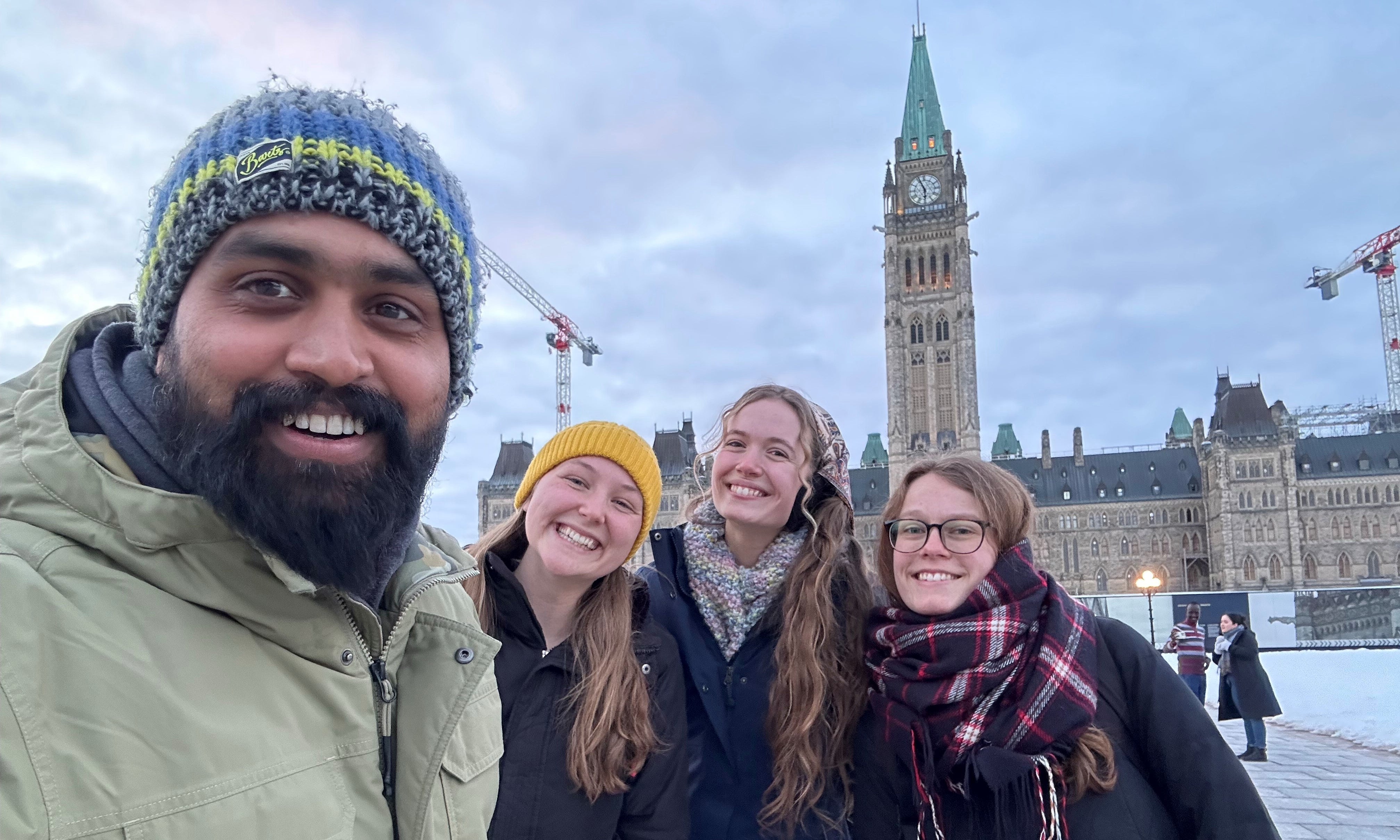
“I was so grateful for the opportunity to attend MCC’s Peace and Justice Student Seminar as a part of my co-op term working with the Centre for Peace Advancement. My role as a Program Assistant at the Centre has given me a taste of how important advocacy can be through what I’ve learnt about the work of the core collaborators and incubator participants. Learning about the advocacy work of MCC together with other like-minded young people working towards peace and justice in their own communities was a really rewarding experience.
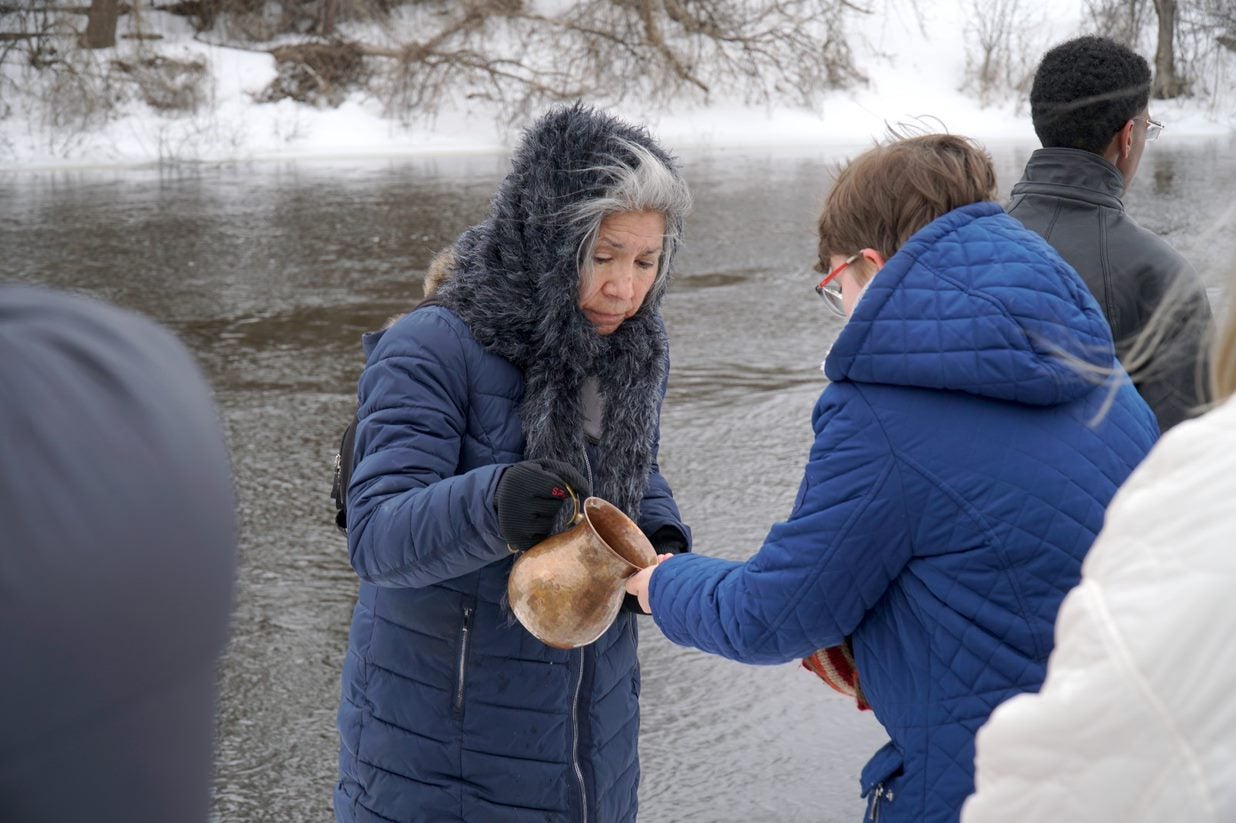
The conference was focused around being “Rooted in Right Relationship” – with Earth and our Indigenous neighbors. The keynote speaker, Mary-Anne Caibaiosai, an Ojibway Anishinaabe woman from Wiikwemkoong Unceded Territory, now-called Manitoulin Island, shared teachings about water and the animacy of all things. Her reminders to care for the earth and for those around us were profoundly powerful. One of my favourite parts of the conference was offering our prayers and hopes along with traditional Anishinaabe medicines to the Ottawa river as part of a water ceremony. It felt like such a juxtaposition to be recognizing water as the blood of mother earth, as the thing that gives us life, while surrounded by towering parliamentary buildings signifying colonialism and skyscrapers reminding us of capitalism.
It felt like such a juxtaposition to be recognizing water as the blood of mother earth, as the thing that gives us life, while surrounded by towering parliamentary buildings signifying colonialism and skyscrapers reminding us of capitalism.
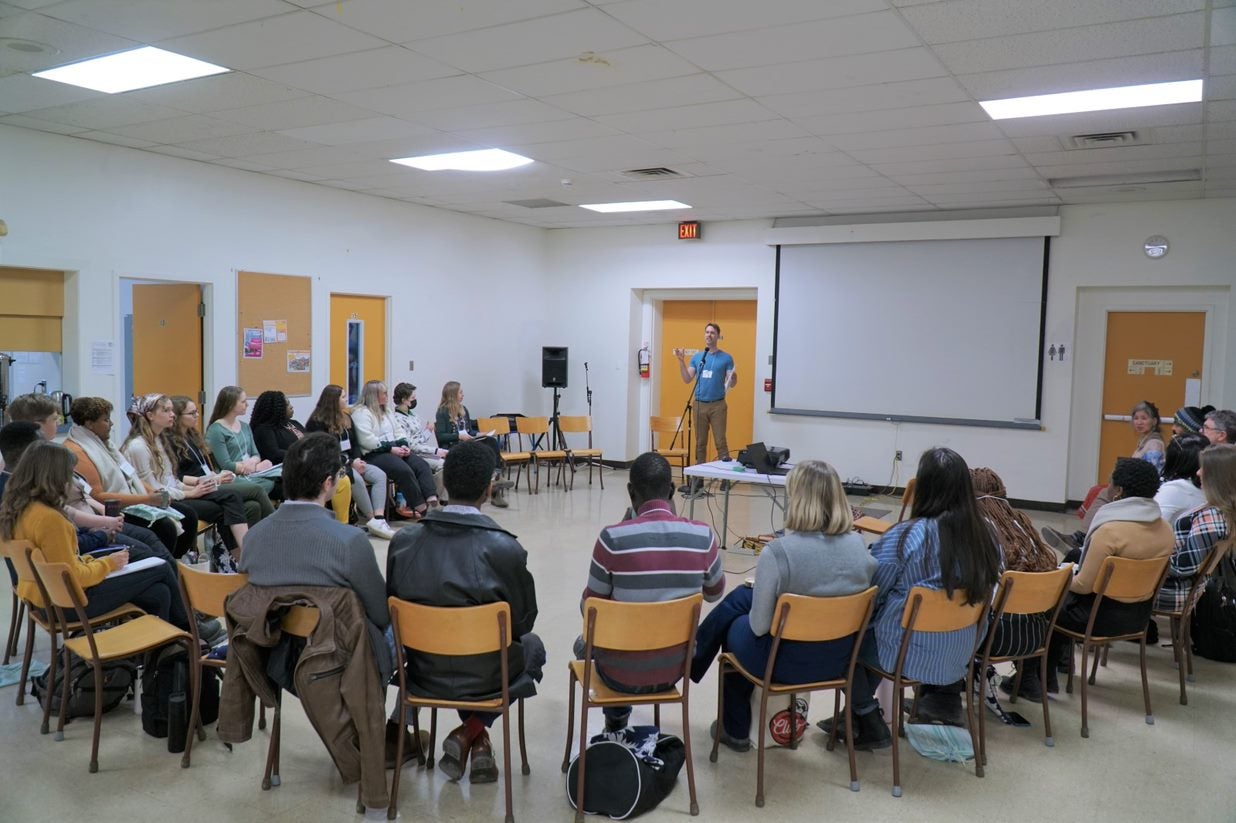
Similarly, it felt like a juxtaposition to attend the Question Period at Canadian parliament after connecting deeply with others at the conference in a circle practice. After hearing from people’s hearts about their wishes for peace and justice in our world, watching MP’s argue with each other in the House of Commons felt silly. Despite this, the diversity of voices participating in the seminar reminded me that the opportunity to watch those in government challenge and contradict each other is a gift. Many international students attended the seminar, coming from places where voices opposing government can be silenced in violent, divisive and brutal ways. They helped me feel grateful for the discussion that happens in Parliament even when it may feel adversarial and it’s easy to see divisions along party lines.
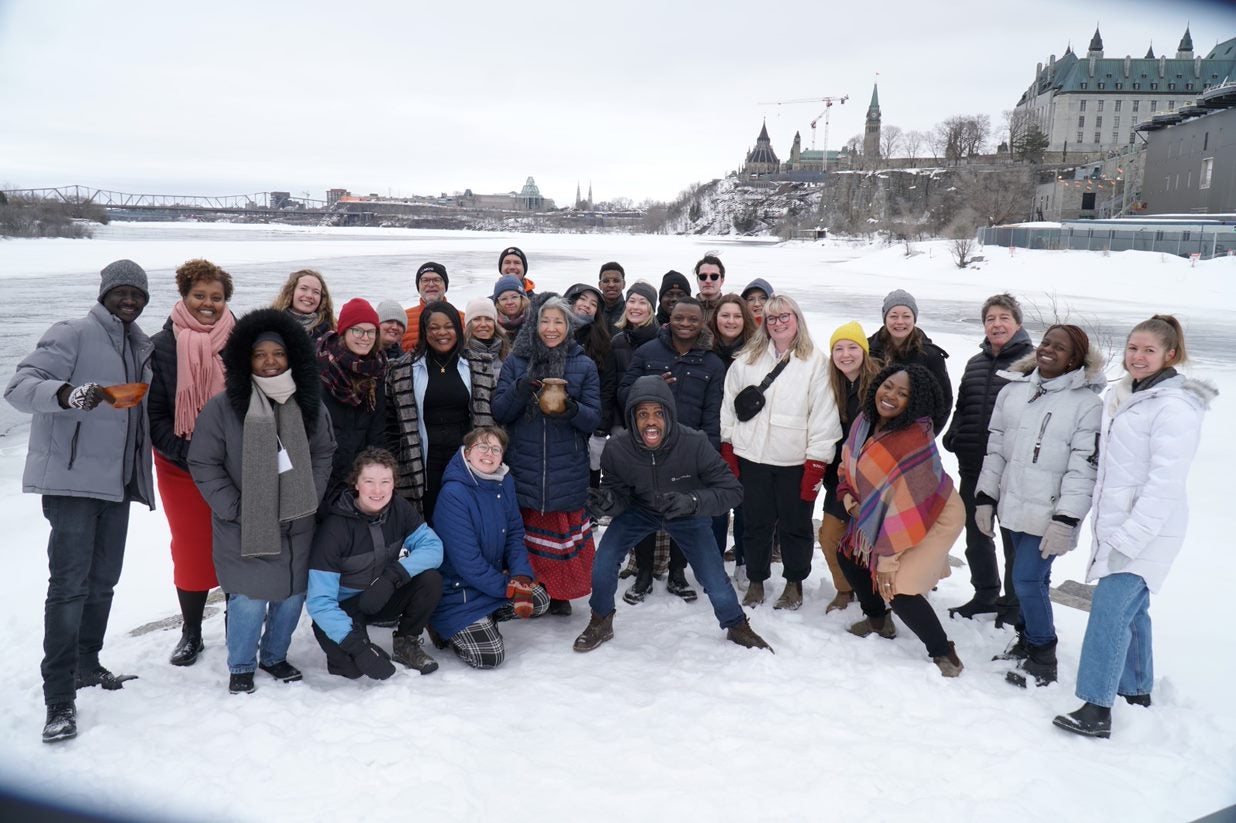
Remembering our original relationship with the land, building relationships with other attendees, and witnessing the work done in relationship by government and civil society organizations made me grateful for the privilege of political advocacy. Coming away, I felt even more committed to advocating for Indigenous justice and land protection. This conference made me grateful for the relationship building and peace building work that can be done when we have the opportunity to connect and share stories with one another.”
Remembering our original relationship with the land, building relationships with other attendees, and witnessing the work done in relationship by government and civil society organizations made me grateful for the privilege of political advocacy.
Interested in the work of MCC? Explore their website. Join them in advocating for more just and comprehensive climate policy.
Want to learn more about the Peace and Justice seminar? Stop by the front desk or reach out to Selah at cpaassistant@uwaterloo.ca